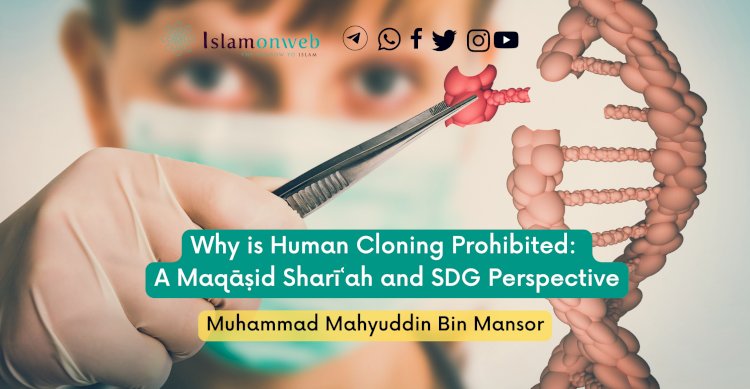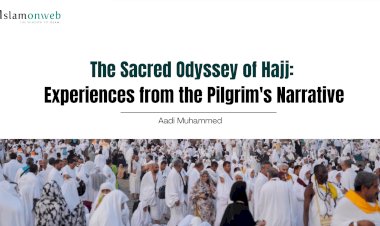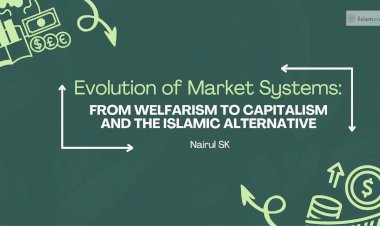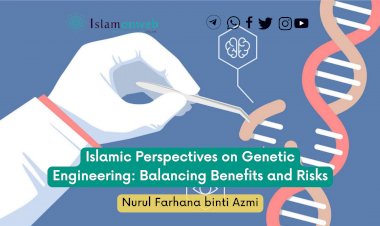Why is Human Cloning Prohibited: A Maqāṣid Sharīʿah and SDG Perspective
Introduction
Human cloning is one of the many issues that are widely discussed in the world today, and it has undergone extensive research and yielded revolutionary discoveries in the past century. It has raised many moral and ethical questions revolving around the human being, the family unit and other social, economic, political and religious issues, among others. It has also given rise to many creative works such as novels, films and literature works, which further expands the ideas and concerns regarding cloning from an imaginary perspective. From a moral and religious standpoint, it is generally regarded as something negative and problematic, and thus we will explore further into that. We will focus our discussion on how human cloning is being regarded from the perspective of Maqasid Asyari’ah, and also regarding the Sustainable Development Goals.
The Process of Cloning
Cloning in general is a lot broader than just the cloning of a human being. Although human cloning is widely considered unethical, cloning in general has benefited humankind in many ways, such as in the medical field with the creation of antibiotics. Cloning has many kinds; molecular cloning, cell cloning, gene cloning, DNA cloning, reproductive cloning and therapeutic cloning.[1]
Cloning research is typically done by manipulating bacteria and their genes within the nuclei to produce many copies of that gene. A genome is an organism’s complete set of DNA, and when regions are isolated and analysed, it can be copied. A polymerase chain reaction (PCR) machine is typically used in laboratories to precisely copy a specific DNA target from a mixture of DNA molecules, or genome. This process clearly shows that scientists are not creating anything out of nothing, but rather using the materials existing within the creatures of Allah and growing, culturing and cultivating them according to certain needs or studies.
Genetical Engineering is also within the scope of cloning, as it is a big part of the process to engineer a specific type of gene that is suitable for increasing production, increasing endurance and much more. Stem cells are also cloned to help the body heal, as stem cells are one of the most beneficial types of cells to help our body recover and grow, such as growing new organs and tissues, and could also potentially cure Alzheimer's and Parkinson’s disease.
The Ruling on Cloning
Cloning is not a new concept. It has existed in nature since the dawn of life. In our day-to-day lives, the most common clones are twins, as their genes come from the same fertilized egg, therefore resulting in identical genes from the parents’ chromosomes. Plants can also be cloned by vegetative propagation, among many other methods. However, cloning human beings is a problematic new branch of research as it is very controversial and involves a lot of perspectives. From a religious standpoint, Allah swt mentions in the Quran:
۞ هُوَ ٱلَّذِى خَلَقَكُم مِّن نَّفْسٍۢ وَٰحِدَةٍۢ وَجَعَلَ مِنْهَا زَوْجَهَا لِيَسْكُنَ إِلَيْهَا ۖ فَلَمَّا تَغَشَّىٰهَا حَمَلَتْ حَمْلًا خَفِيفًۭا فَمَرَّتْ بِهِۦ ۖ فَلَمَّآ أَثْقَلَت دَّعَوَا ٱللَّهَ رَبَّهُمَا لَئِنْ ءَاتَيْتَنَا صَـٰلِحًۭا لَّنَكُونَنَّ مِنَ ٱلشَّـٰكِرِينَ ١٨٩ [2]
{ He is the One Who created you from a single soul, then from it made its spouse so he may find comfort in her. After he had been united with her, she carried a light burden that developed gradually. When it grew heavy, they prayed to Allah, their Lord, “If you grant us good offspring, we will certainly be grateful.}
From this verse, we understand that humankind is made as a family unit, beginning from the pair of male and female, who then makes offspring and find comfort within each other. Therefore, human cloning, which bypasses the family structure, is against the fitrah set by Allah, and it also affects social, political, economic, legal, religious and ethical aspects of life, and is consequently banned in the Declaration of Human Cloning in the year 2005. There is no khilaf (disagreement) among the madhahib (various schools of Islamic jurisprudenc) that human cloning is haram (prohibited), as there are attempts to change the creation of Allah by going against its nature, interfering with the individuality of human beings, the family bond, and the possibility of making slaves from clones and engineering them to never go against orders, among many other things that can be done with cloning human beings that go against morals and ethics and go against the Syari’ah of Allah.
Maqāṣid Sharīʿah and Sustainability of Human Cloning
The Maqāṣid Sharīʿah is the purpose for which Allah sets down laws, and it is typically narrowed down to 5 main aspects, which are the preservation of religion, life, intellect, chastity or lineage, and property. Human cloning tempers the preservation of life by going against the natural order of creation by bypassing the family bond. It also tempers with lineage, for how can a person keep track of his genealogy if genetic copies of himself are widespread? The religious aspect is another rather bigger issue, as questions might arise such as if a person is cloned, how about his soul and consciousness? Will each clone be questioned individually or as one unit? If the gender of the clone is changed, will they be considered a mahram? These are just a few among many, possibly infinite number of questions that can be asked. The intellect and property are not untouched either, because if your clone has your exact biometrics and memories, then what of your thoughts and ideas, and your bank and your riches? Therefore, human cloning is definitely, without doubt, nor khilaf, prohibited.
The Sustainable Development Goals (SDGs) are the 17 goals set by the United Nations as a global effort to promote better ways to develop, produce and consume, and increase the quality of life. Although human cloning might help with certain goals, such as providing more manpower, engineering clones with increased intellectual capabilities, and the like, the cons far outweigh the pros. More people mean more mouths to feed, which increases hunger and poverty, but politics might be the biggest factor, because if cloning is allowed, nations will race to produce more clones in greater quantity and quality than other nations, providing armies for wars, stand-ins for important positions, and many other negative implications and misuse that mankind is so well known for.
For these reasons, human cloning is prohibited by both religion and common sense, and should not be practiced freely without restrictions, or at all.
Conclusion
Human cloning is not an element of science fiction, but an actual field of exhaustive research. Although cloning in general is fascinating, the issues and ethics of human cloning is not something to be overlooked. The Maqāṣid Sharīʿah clearly prohibits human cloning due to the issues that arise with it, and the SDGs do not benefit from this act either. Overall, it is a field that might benefit mankind by focusing more on the means to cure diseases, but not something to be practiced, and Allah knows best.
Major Reference
Mat, S. R. et al. Molecular Cloning: Is it permitted in Islam? (2nd International Convention on Islam, Science & Education), 2016.
[1] https://www.researchgate.net/publication/313528318_Molecular_Cloning_Is_it_permitted_in_Islam
[2] Surah Al-A’raf verse 189
About the author
Muhammad Mahyuddin Bin Mansor is an undergraduate student of the Department of Fiqh and Usul al-Fiqh at International Islamic University (IIUM), Kuala Lumpur.
Disclaimer
The views expressed in this article are the author’s own and do not necessarily mirror Islamonweb’s editorial stance.
























Leave A Comment